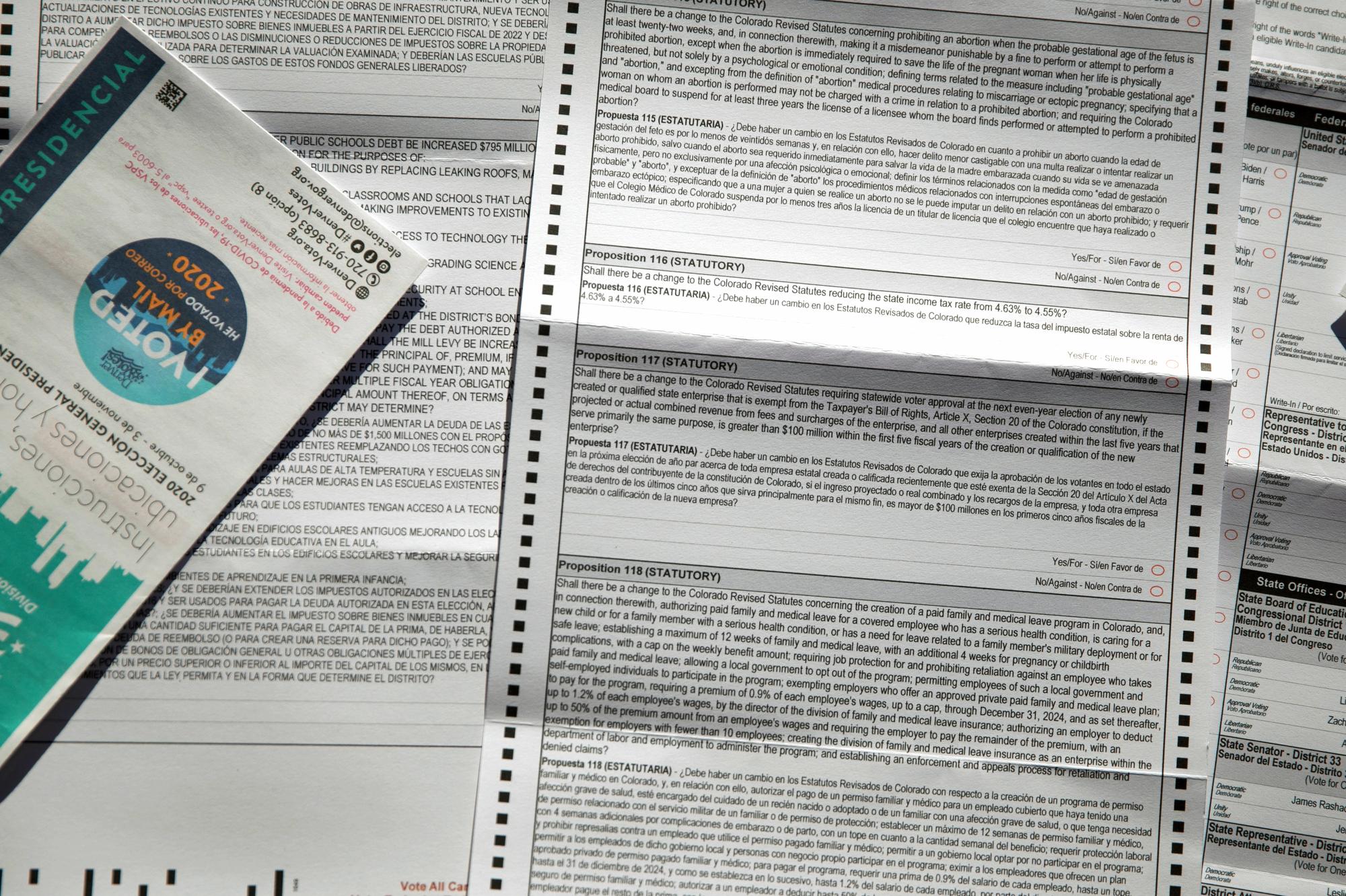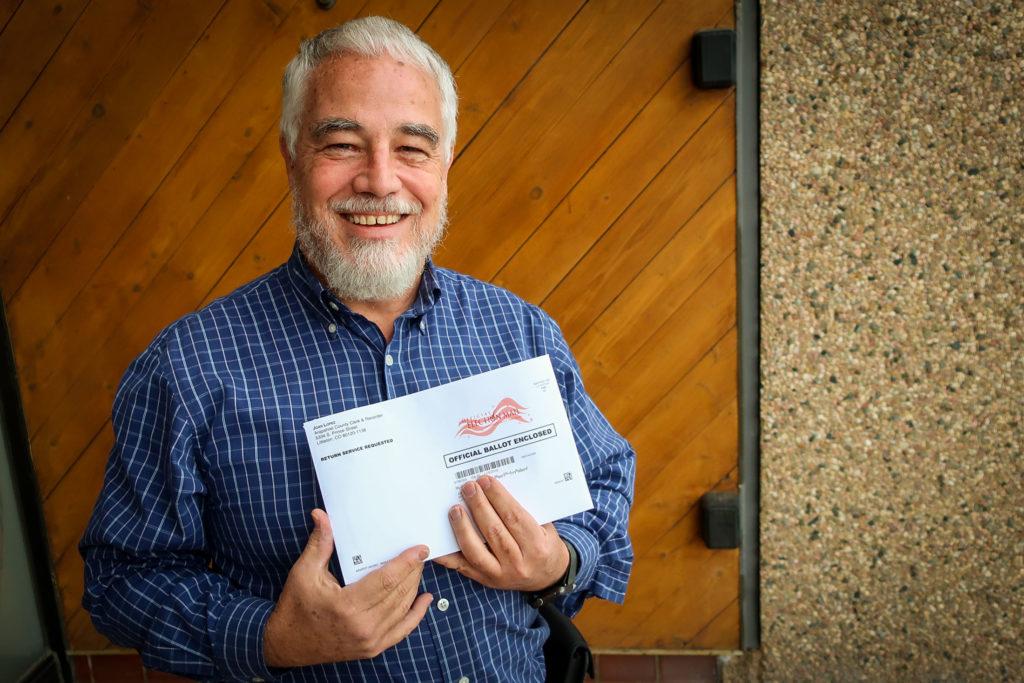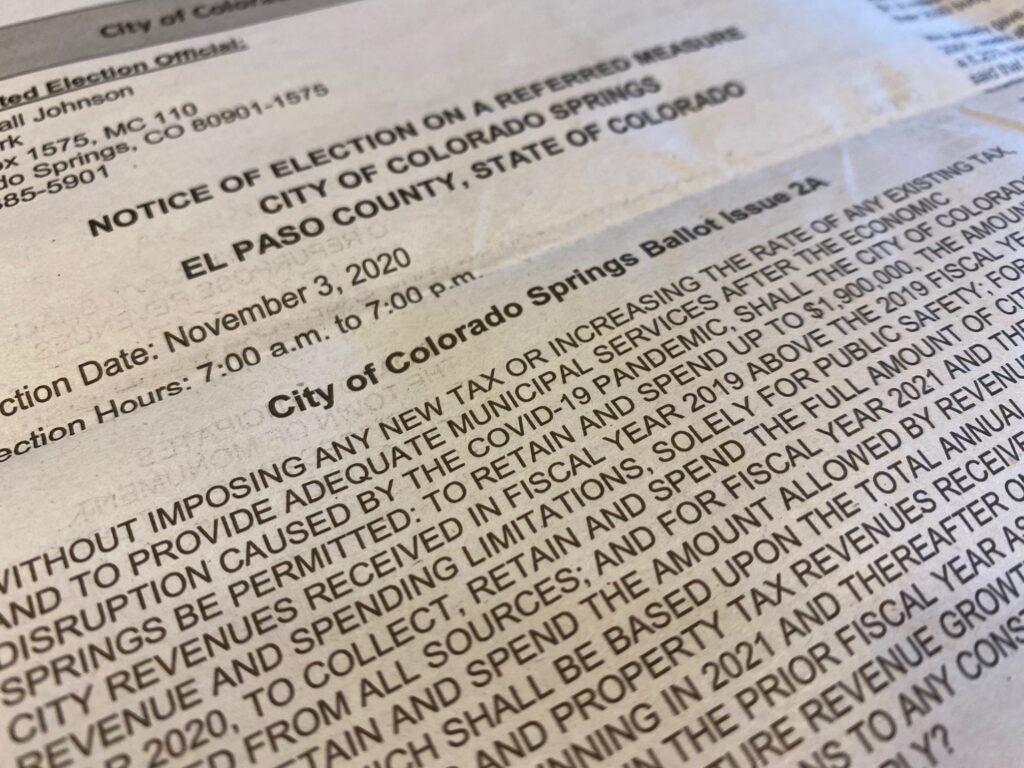
Editor's Note: This story was originally published on Oct. 28, 2019. Some details have been updated since then.
John Waber of Littleton is in the same boat as 3.5 million other Coloradans. He’s got a mail ballot to fill out for the upcoming November election. There are several local issues, but only three statewide measures to vote on. Shouldn’t be too hard.
But he noticed something that was strange to him.
“They’d call that shouting,” Waber said of some of the printed ballot type he saw. If you still have it, take a look at your ballot. Some of it is in ALL CAPS.

It’s not the etiquette of “shouting” in print that concerns him. It’s how it might affect readability for voters. “From everything we've been taught... mixed case makes it much easier to read,” Waber said.” In fact, this uppercase just almost discourages anybody from reading the ballot measures.”
Why some measures on your Colorado ballot are written in ALL CAPS
What’s the deal with ALL CAPS? Colorado Wonders checked in with Secretary of State Jena Griswold, the overseer of Colorado elections, who said the state constitution dictates the capital letters when a measure deals with tax increases. And if it deals with taxes — stop us if you’ve heard about it before — it’s time to learn a little bit more about The Taxpayer’s Bill of Rights.
TABOR, “requires that the state of Colorado and all political subdivisions submit tax and debt increases to voters,” Griswold said. “And a section of TABOR requires that those ballot issues appear on the ballot in uppercase letters.”

Douglas Bruce led the storied fight that led voters to approve TABOR in 1992. He wanted to make sure any proposed tax increase would go before voters. And that any surplus tax revenue the state collects in a given year is returned to voters, unless officials ask voters for permission to use it.
Bruce put the ALL CAPS requirement because he was determined that no tax increase should slip by voters. He didn’t think of it as shouting, as is commonly understood now when all caps are used in social media.
“We want to tell people the price tag upfront in capital letters,” Bruce said. “It’s not exactly grabbing them by the shoulders and shaking them, but it’s saying, ‘Hey, don't just fool through this in some drowsy state of mind. Be aware that this is gonna cost you.’”
Waber isn’t sold, he still thinks regular sentences, upper and lower case, would be easier for voters.
“It doesn't make a whole lot of sense to me, but the law is the law, you have to comply with that,” Waber said.









